Meet Record Industry Heavyweight Cyrus Meher-Homji of Universal Music Australia
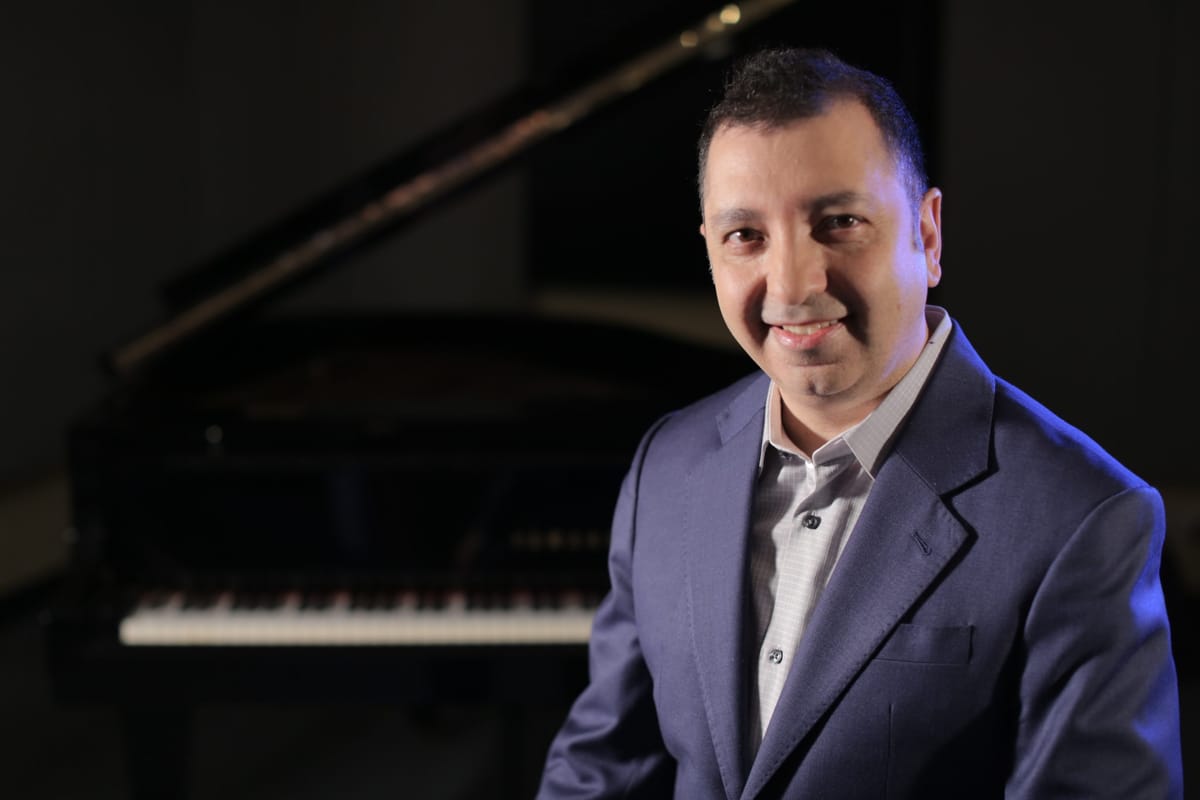
Cyrus Meher-Homji is the Senior Vice-President of Classics & Jazz at Universal Music Australia. He is a trained concert pianist and holds a Master’s Degree in Musicology from The University of Western Australia. He has written in books and music journals about Percy Grainger, Eileen Joyce, Julius Katchen and Noël Mewton-Wood, and contributed to a series of magazines and newspapers, including Gramophone, International Piano Quarterly and The Australian. From 1993-1998, he created and published Soundscapes, a music magazine with an international circulation. In 1999, he founded the Eloquence label devoted to reissuing key recordings from the rich heritage of Decca and Deutsche Grammophon. He has worked closely with a range of artists including Cecilia Bartoli, André Rieu, Dame Joan Sutherland, Richard Bonynge, Patrizio Buanne, Zubin Mehta, Judith Durham, Renée Fleming, Aled Jones and Jean-Yves Thibaudet.
Cyrus was awarded the Medal of the Order of Australia (OAM) in 2019 for his service to the performing arts, particularly through music.
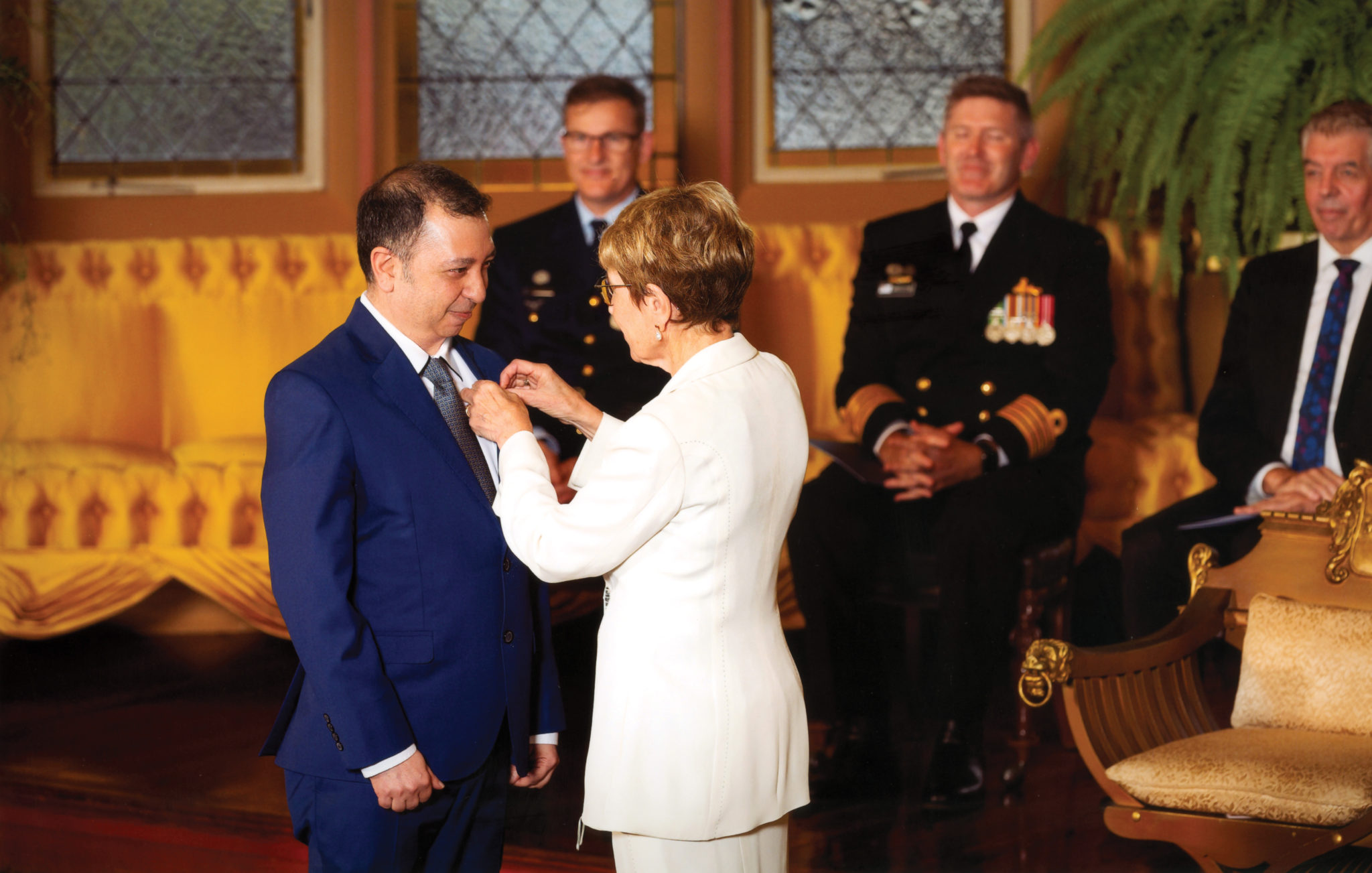
Serenade Team: What do you think are the main goals of recording, editing and mastering? Is recording a reflection of reality or is it by default artifice and therefore subject to its own rules?
Cyrus Meher-Homji: I think it depends on the situation. If you’re recording live, then its reality. If you’re recording in a studio, then it depends on the choice of the artist and the producer. If the artist chooses to do very long takes with minimal editing, and that has happened in the past and continues to happen, then it is reality. If an artist records in sections and the engineer stitches it together, then that’s artifice and thus makes the artist look good.
There are artists like pianist Grigory Sokolov who is signed to us at Deutsche Grammophon and he refuses to do studio recordings because he feels they are very artificial. He will only approve live recordings and if there are blemishes then, depending on how big the blemish is, he will allow it to go through. He feels that would be a much truer representation of himself. And there are yet other artists lamentably like pianist Radu Lupu who will not go into a recording studio. He retired last year sadly. In the last 15 years of his career he just couldn’t step into a recording studio because he felt very uncomfortable. He also had a microphone phobia so he wouldn’t allow live recordings to be released either.
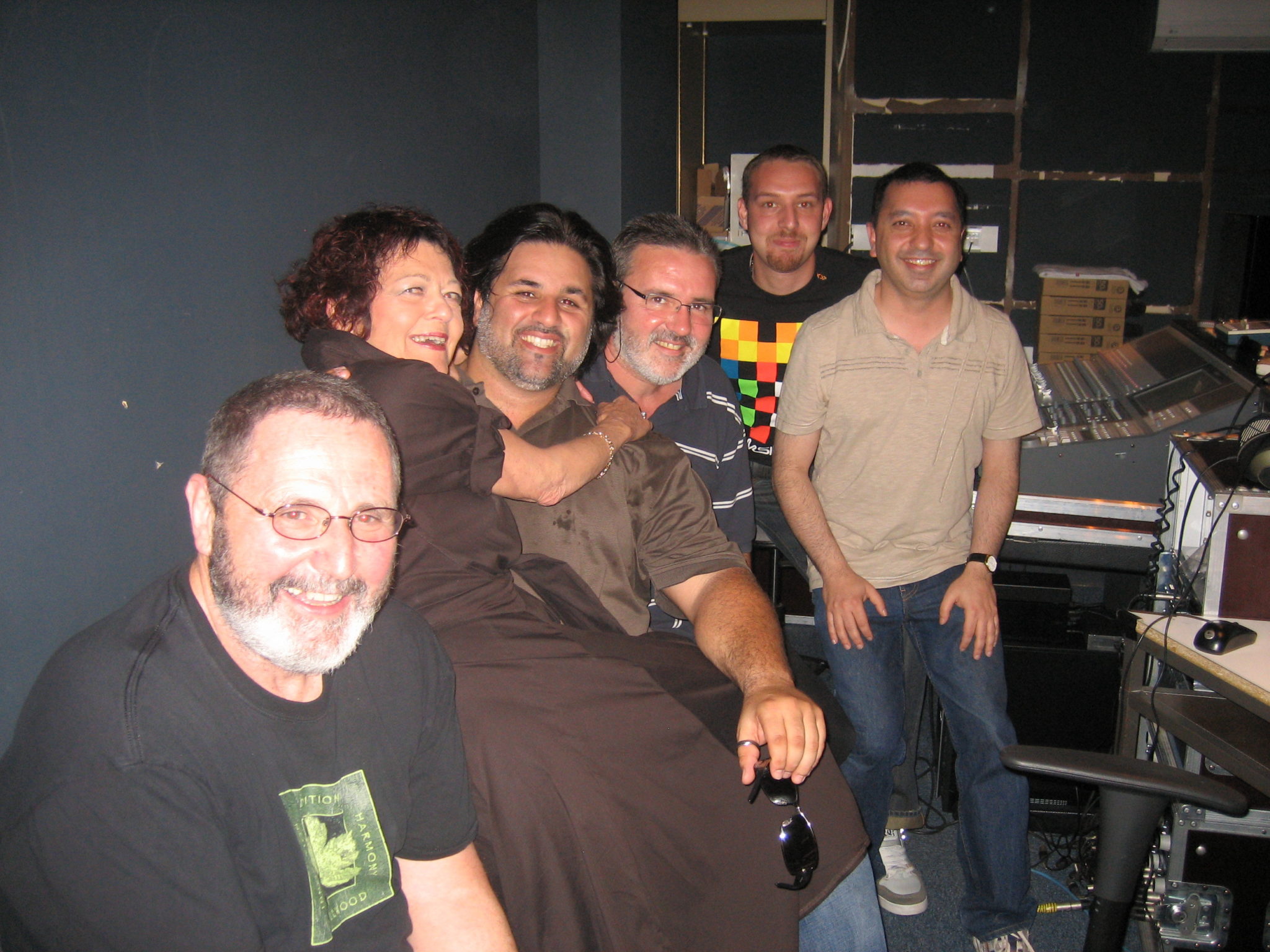
ST: You set up your recording label, Eloquence, over 2 decades ago as a reissue series which selected catalogues from Philips, Decca and Deutsche Grammophon. What was your curation process for selecting new releases in the early days and how has it changed over time?
CMH: There were certain aims from the start which evolved over time. Eloquence was started as a label within the Universal Music Australia environment that made classical music available affordably to a larger audience. At the same time, it was not apologetic about the fact that it was selling at budget prices. It was for commercial reasons too. We wanted to be competitive with other labels in the market that were doing the same thing. The majors (RCA which then become BMG, Warner, Sony, Decca and DG) were very resistant to putting out recordings at budget prices as they felt it didn’t reflect the quality of their recordings. The commercial reality was that there were a lot of other people doing this. If the majors did not get on the bandwagon, they’d be left behind. This was something I pushed very hard. It was very difficult to get recordings for clearance in those early days. That has kind of become easier as time has gone by. As streaming, has taken over, not necessarily in classical but in the general environment, it has become clear that CDs are not infinite. There will come a time when things will not be quite the same as they are. You might as well get your act together and put out as much as you can.
One of the first artists I chose was Zubin Mehta because we know each other. He was, for a very long time, an exclusive Decca recording artist. Several of his recordings had been neglected by record companies. I thought it was time to address that. As time has gone by, the aim of keeping prices low hasn’t changed though it has become more difficult as sales shrink. The aim to excavate the depths of the catalogue has become even more prominent in my thinking. One of the developments of recent years for Eloquence has been to issue more by way of editions and box sets.
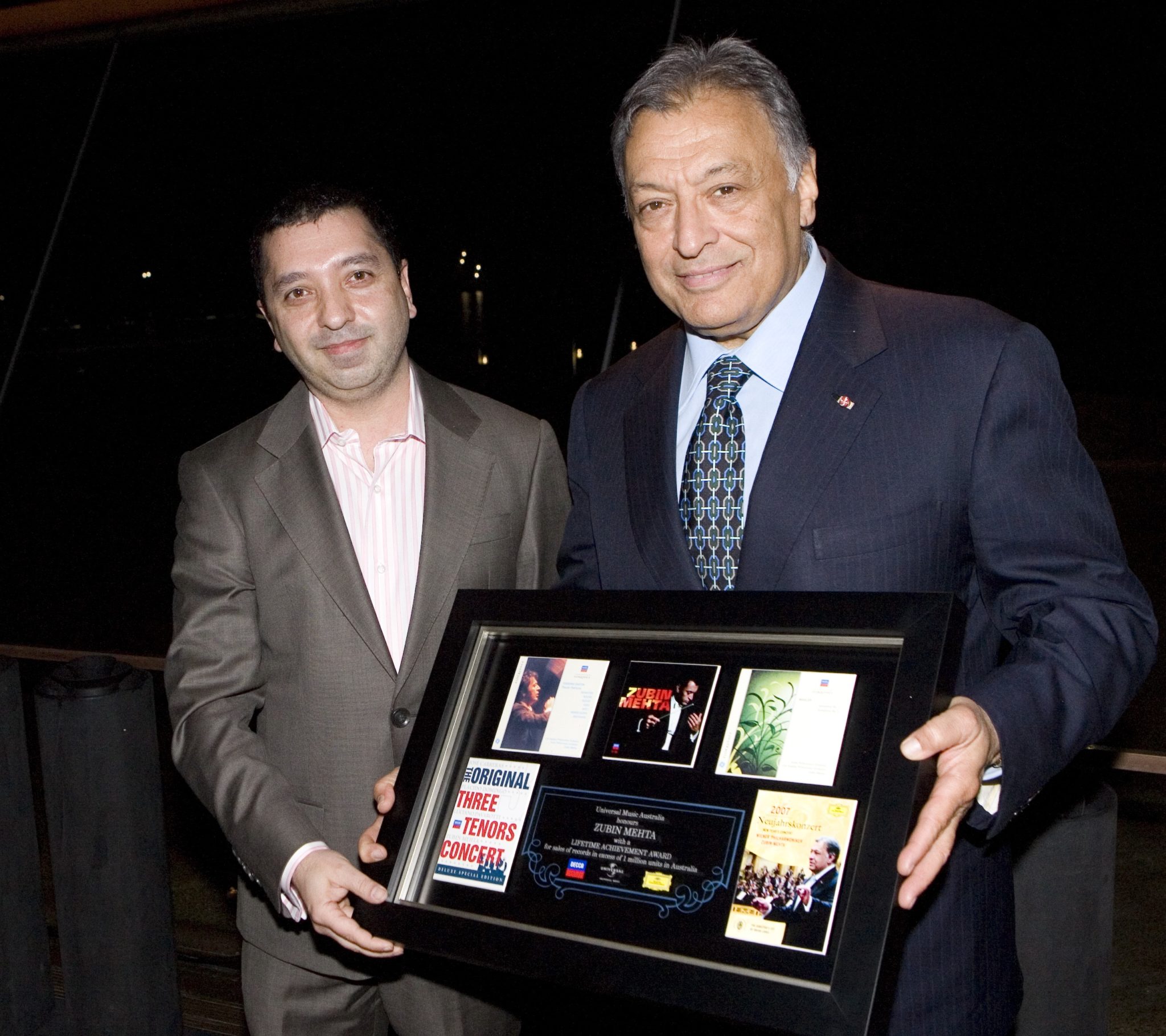
ST: Do you see yourself launching a streaming service? What are your thoughts on classical music streaming services such as Primephonic and Idagio? Do you see a future for physical CDs?
CMH: Yes, I do see a future for physical CDs. How long is anybody’s guess. It depends on how active the market is. Classical music in the CD era was the genre that led the revolution. Pop is what led the streaming revolution. What is it that people want when they collect classical music CDs? They want the literature (booklets and pictures) which is absent even in the dedicated streaming services like Idagio and Primephonic. There’s a lot that they can do there to make these things available. This is what people are crying out for. We, at Universal, do not have our own streaming service for any music. We rely on Spotify, Apple Music, Idagio etc.
ST: You have taken up several roles – concert pianist, author, music magazine editor, television programmer and record producer – what drew you to the music industry?
CMH: It started when I was a kid. I had this obsession with records. Both my maternal and paternal grandparents had collections of not only LPs but also 78s. Even as a 3-year-old, I was fascinated by the gramophone that a lot of Parsi households had. On both sides of my family, especially my father’s side, we were very much into classical music and that’s what I heard growing up and loved it. It was an obsession. I always wanted a career in music but staying in India it would have been almost impossible.
I came to Australia to pursue my music education. While I was finishing my Master’s in Musicology, I started work in a new classical record shop. This is where I started a little magazine called Toccata and Fugue that was put out for free every month with reviews new recordings and upcoming releases. Several record companies noticed this and said Australia doesn’t have a classical music recordings magazine and thus I decided to do that. In 1993, I launched Soundscapes magazine. Piano playing then took a sidestep and I think I realised there was more I could contribute in this field than being yet another pianist. My obsession with records had never left me. In fact, it intensified over the years. It was a nice step into a different world. The magazine grew. Myself and the magazine became one of the judges for the Cannes Classical Awards. And that led me to then meeting with several record companies. Unfortunately, when the magazine closed, I joined PolyGram which was the predecessor of Universal. They merged the year after I started there. That led me into the record industry.
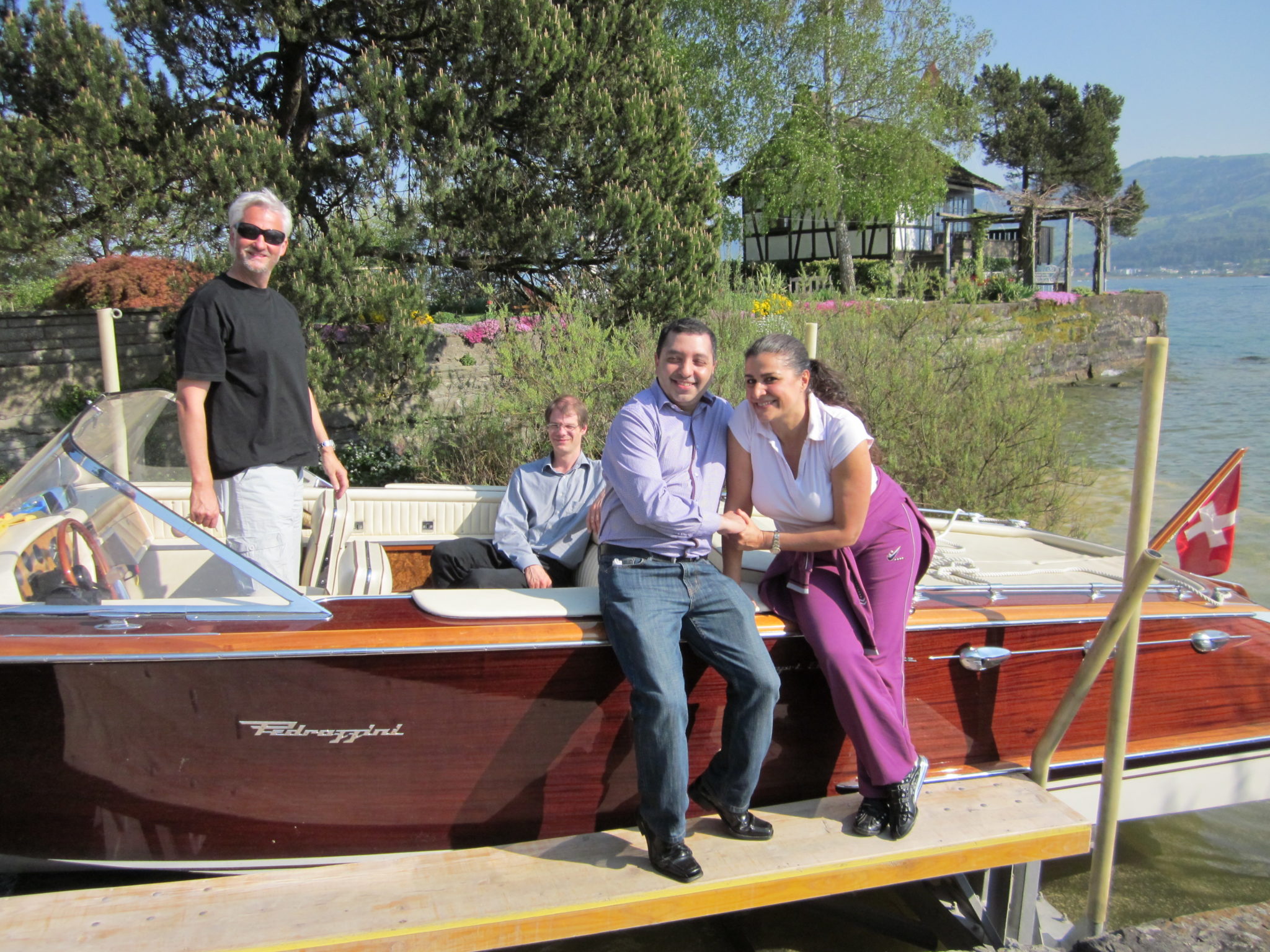
ST: What were some of your career highlights in the recording industry?
CMH: Any Eloquence release is a highlight! One of the greatest joys is to discover, in the tape archive, material that is not known of, and never released. That has continued since ’99 when I started.
Recording Emma Matthews and Sir Donald Bradman’s granddaughter Greta Bradman has been a great joy. André Rieu is a great friend and we get on very well. He is an absolute juggernaut. It was 2008 when he came to Australia for the first time to do a tour with his full orchestra. He had a life size replica of Schönbrunn Palace! His concert at Melbourne’s Telstra Dome held a record audience of 38,605, making it the biggest attendance of any Rieu show anywhere in the world. No one believed in him so I had to push his agenda within Universal. For two years running, he became the biggest selling artist of any record company of any genre! That was a good feeling.
The few times I have spent time with Zubin Mehta has been wonderful. Great to hear his stories, great to work with him and reissue his material. Meeting the late Jessye Norman in Paris after a recital was fantastic. I idolised her and still do.
Another highlight was forming a friendship with Joan Sutherland and Richard Bonynge on their visits to Australia. Richard still visits Australia and invited me to be on the Board of the Joan Sutherland and Richard Bonynge Foundation, and among the reissue work I’ve done, I worked on a box that Decca issued (centrally) of his complete ballet recordings; it was released in December. But many years earlier, when we checked tapes of a recital record of French Opera Arias that Joan and Richard made, we found at the end of the tape, half a dozen French songs that Joan and Richard performed while the tapes obviously rolled on! Even they couldn’t remember the occasion, but we did issue it. A couple of years before she passed away, at my request, Joan put together a collection of her favourite Decca recordings, which we also released last year. And when I reissued their Christmas record in the early 2000s, coupled with moments from Richard’s recording of Nutcracker, I asked if she had a recipe for Christmas pudding. The next morning when I got to work, on the fax machine, were rolls of paper with her recipe, which I’ve since used a couple of times in CD booklets – and which, from all accounts, having made its way onto social media, fans baked for Christmas!
Radu Lupu is another hero. I heard him when I was studying piano in London. He played the Grieg concerto with the LPO and Tennstedt and played more wrong notes than anyone I’d heard perform that season, and yet, such was the magic – especially of his pianissimi – that it would have to rate as one of the great moments of my concert-going years. I heard him again about three years ago, in Frankfurt and Berlin, in an all-Schubert program. Though a shadow of his leonine self, he could still make magic – and I think that is increasingly rare in our world today. It’s such a pity that he’s withheld some great recordings he’s made from being published (Mozart Piano Quartets, Schubert sonatas).
Lastly, another ‘high’ was when I was awarded the Order of Australia medal. It’s not something you see very often in the classical recording industry. I’ve never been one for self-aggrandisement, but I floated, I’m sure, when I received the news – and on the day of the ceremony. It was quite special.
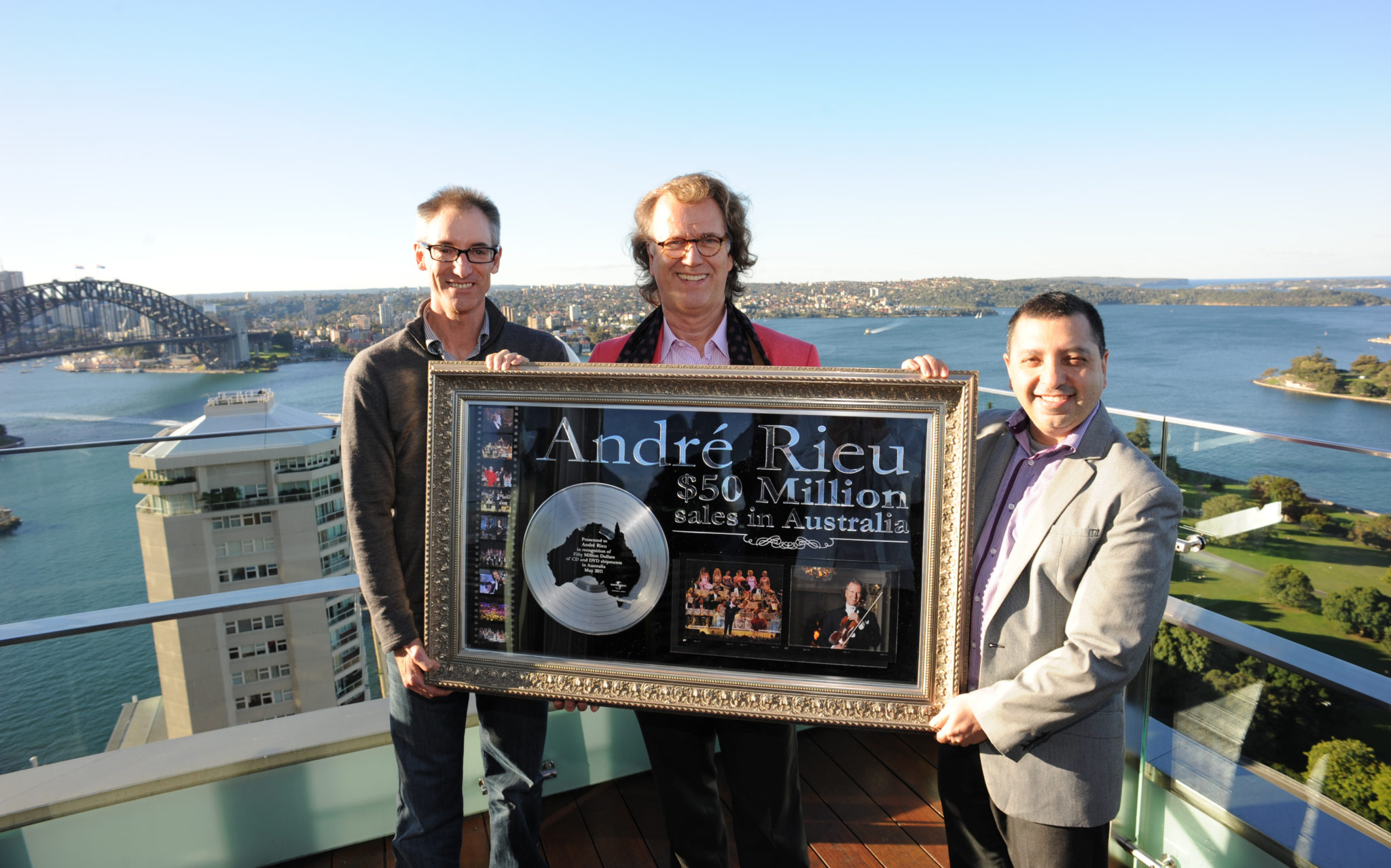
ST: What fond memories do you have of the Poona Music Society?
CMH: I must have been four when I attended my first classical concert held by the Poona Music Society. I have a vague recollection of shuffling during the first half and being entranced by the second – at least, so I’m told. It might have been a violin and piano recital, with sonatas in the first half and a clutch of encores in the other. But I was smitten. I ‘learned’ much of the violin/piano and cello/piano repertoire by attending concerts from before I can remember to the point when I left for Australia. Of course, there were a couple of stand-outs such a harp ensemble of six harpists (I wonder how they got them and their instruments transported safely to Poona!) and Celia Lobo singing sacred music. I turned pages for Mehroo Jeejeebhoy and was so transported by the Brahms G major Violin Sonata, that, at a particularly hairy moment for the piano, she had to hiss, in desperation, ‘Cyrus, turn!’ But one memory abides: that of Tehmie Gazdar. Calm, immaculate, unflappable (or at least so it appeared – though years later she told me that the last movement of the Brahms D minor Violin Sonata always made her queasy, no matter how many times she had played it), she was the model of a chamber musician. As was the norm in those days, the programme always said: ‘Accompanied by Tehmie Gazdar’ or ‘with Tehmie Gazdar at the piano’, as if the pianist was in service of the partnering instrumentalist, or at worse, an afterthought. I suppose it was a remnant of the age of the Heifetzes and the Kreislers, when the spotlight was on the soloist and the ‘accompanist’ was very much relegated to the background. I came to loathe the word ‘accompanist’, for having studied and played some of these piano parts myself, I realised just how vital they were to the partnership and how complex they could be. (The same goes for nineteenth-century Lieder repertoire, especially Richard Strauss and Wolf, and a lot of Schumann.) But Tehmie’s playing was one of the most formative influences on my early musical life. Had I been able to wind back the years, as a record executive, she would have been one of the first artists I’d have wanted to make records with. I so regret that no recordings, even radio recordings, seem to have survived.
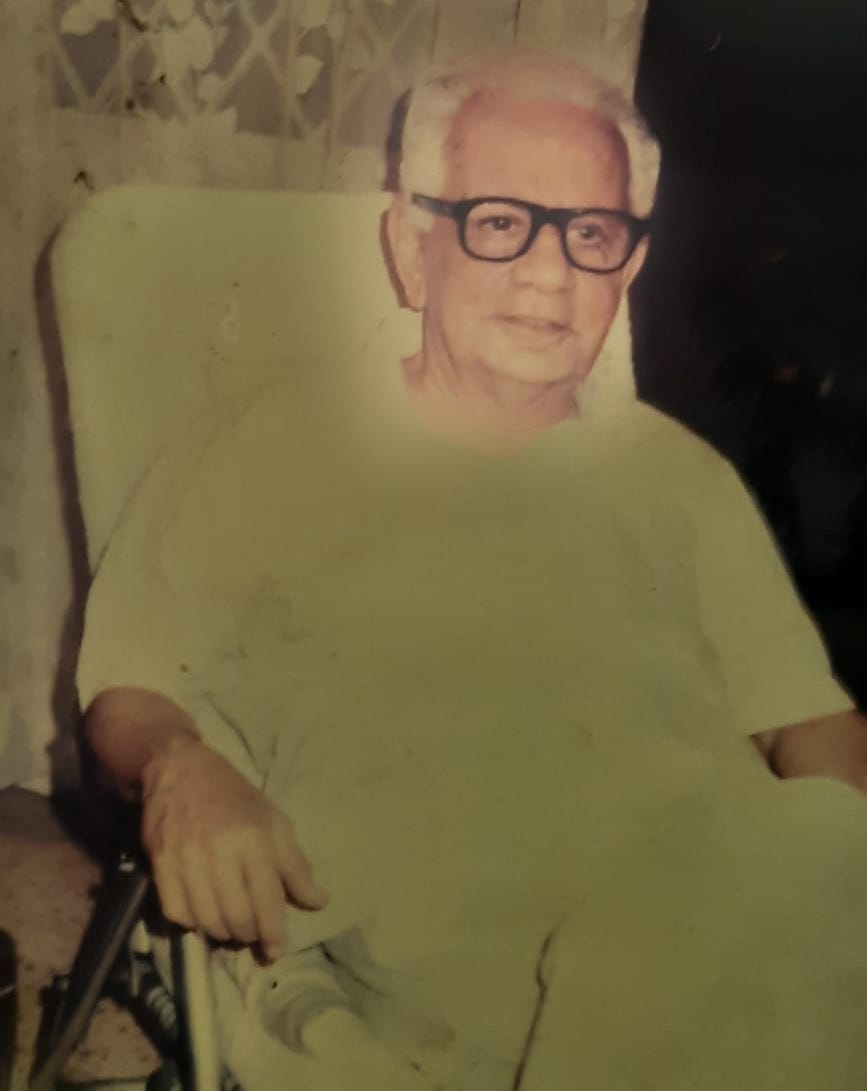
The Poona Music Society was, at the time, run by a delightful gentleman by the name of Adi Framji. His day-job was working at Pocha Seeds Private Limited. Another of my curiosities, if not abiding interests, was gardening – or at least armchair gardening. My mother, who still has green fingers, tended to a delightful garden in Poona. But not for me the hollyhocks or the larkspurs or petunias. Just as I wanted to discover solo music for the viola or double-bass, I was interested in all the exotically-titled packets of seeds, and would visit him in his office – mostly to talk about music, sometimes to buy seeds. I remember my interest being piqued by a lone packet of Browallia seeds. Having bought and planted them, I was delighted with their bluey-purple flowers. Little did I – or my mother – know that they would multiply like weeds and very soon a well-landscaped and perfectly manicured garden was overrun with Browallia. I don’t think I was ever forgiven, and so contact with Mr. Framji was limited to musical pursuits, such as buying tickets for concerts. I recall amusingly, that even though I was there within five minutes of box office opening for PMS concerts, a lot of the best (front-row) seats had already gone! Meticulously, Adi would place a diagonal line in a box allocated to a seat (we usually ended up in row C, piano side, at St. Vincent’s Gulati Hall), and then, once the ticket was bought, allocated and importantly, paid for, an opposite diagonal to form a cross would be inscribed – indicating that the transaction had been complete. Years later, upon observing the variable quality of the programme notes, I offered to write (and type!) them for him. Hesitantly he agreed, but only on the condition that they remain completely anonymous. And no, of course, there was no payment. But that’s how I cut my musical teeth in those earliest years. The Society continues its good work and I’d wholeheartedly encourage anyone reading this to continue to support it.
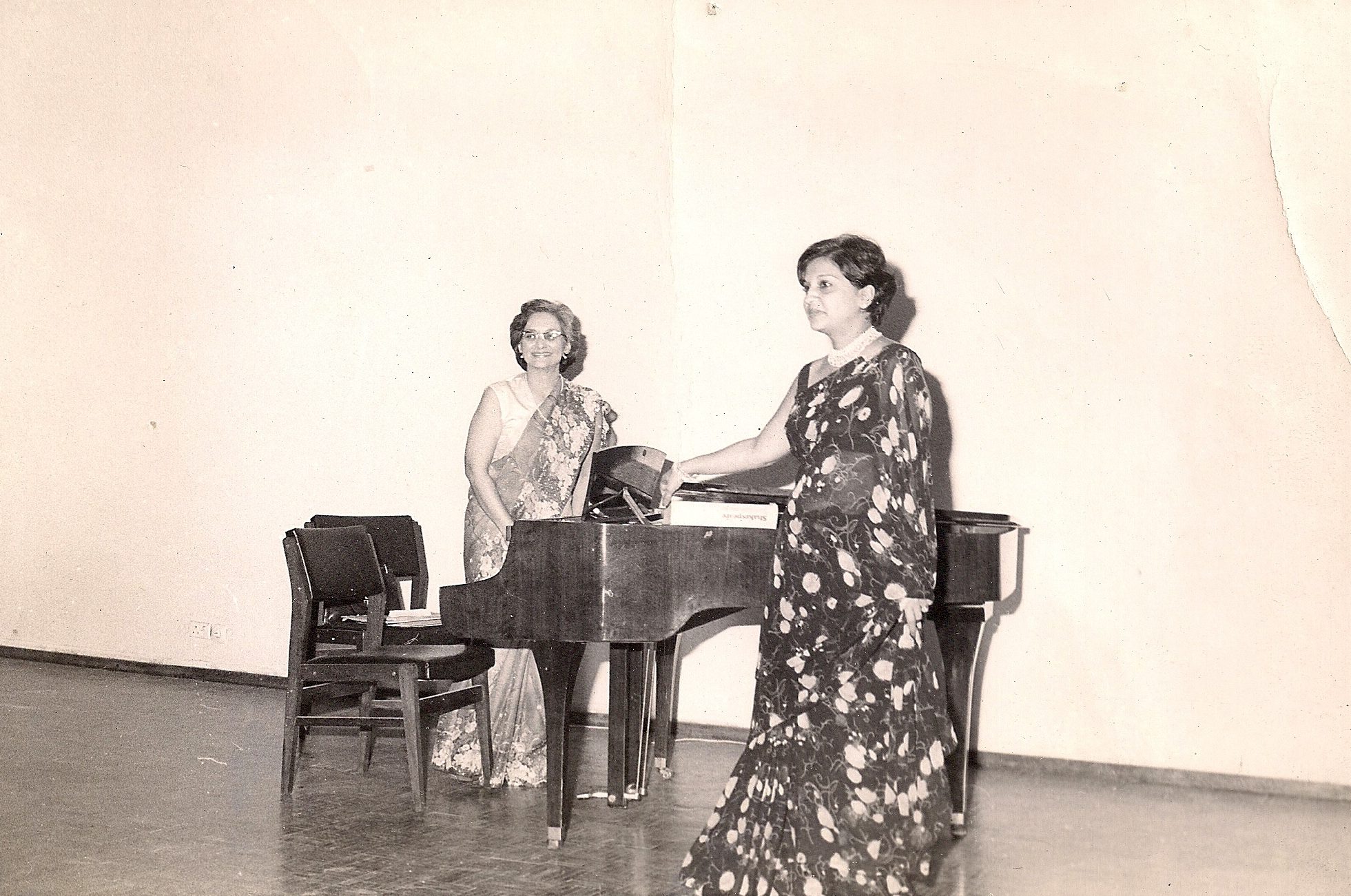
ST: Do you see the arts and entertainment sector recovering in Australia from the Covid-19 pandemic?
CMH: Australia has been lucky in comparison to other countries. My heart goes out to a lot of artistes who are simply without work. I’m on the board of the Sydney International Piano Competition which we had to cancel last year. We’re doing one online this year. There are things that come out of despair and trouble that may point the way towards new methods of consumption. I don’t think sitting in front of your computer or television is ever going to be a substitute for live music, but at least it keeps live performance in one form or the other going. Recovery is slow as you move two steps forward and one back which is better than a lot of countries. Performances have started resuming this year over here.





